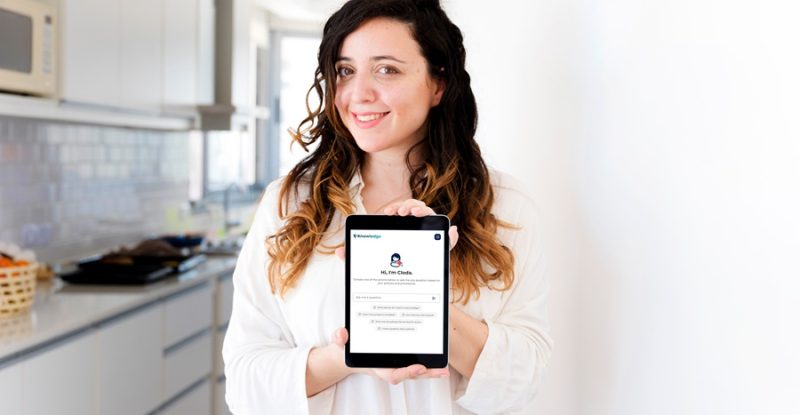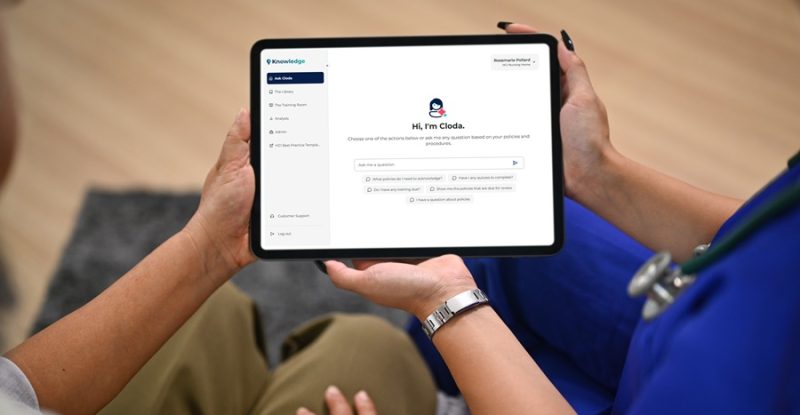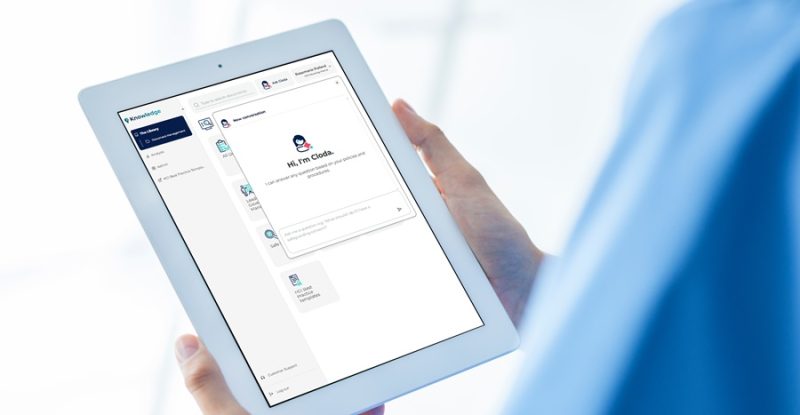
Introduction: A Diverse Workforce, a Singular Challenge
Healthcare in Ireland has become increasingly multicultural, with the OECD ‘Health at a Glance: Europe 2024‘ report highlighting that 51.8% of nurses are foreign-trained as of 2023. This diverse workforce brings immense value from broader perspectives, cultural competence, and enriched care experiences. Yet it also introduces new challenges, particularly when it comes to ensuring staff understanding of internal documentation such as care policies and procedures. Most of these essential documents are written in English, assuming a level of fluency that may not reflect the reality on the front lines.
For international staff, navigating complex policy language, especially under pressure, can lead to uncertainty, misinterpretation, or unintentional non-compliance. Traditional policy management systems rarely account for these barriers. This gap poses serious risks to patient safety, care quality, and regulatory compliance. To foster a high-performing, inclusive care environment, multilingual access must be a strategic imperative, not a nice-to-have.
This blog explores how The Knowledge Library and Cloda provide a smart solution to ensure every staff member can access care processes in their own language.
Before we dive in, we’d love your insight on what’s your biggest policy communication challenge!
Poll: What’s Your Biggest Barrier to Effective Communication of Policies and Procedures?
Cast you vote to see what your peers say!
The Risks of English-Only Policy Access
A recent research paper from the RCSI (2025) highlights that “language proficiency directly affects patient safety, quality of care, and health outcomes. Clear communication is essential in healthcare, where misunderstandings can lead to greater patient safety risks or reduced care quality”.
Healthcare teams are often multicultural, with varying levels of language proficiency. Policies and procedures are typically in English, and so traditional policy management systems rarely account for potential language barriers. Such language barriers can lead to missed details in clinical protocols, misunderstood safety alerts, or failure to follow correct procedures. For organisations striving for compliance or accreditation, this presents a hidden risk as staff may not be equipped to consistently implement procedures they cannot fully comprehend.
Introducing Cloda: The Digital Assistant Enhancing Policy Understanding Through Multilingual Support
Cloda is the digital assistant designed specifically for healthcare teams who need quick, accurate access to procedure information, regardless of language proficiency. Integrated with The Knowledge Library, Cloda allows staff to ask questions in their native language and receive clear answers, in their own language. It eliminates the risks of misinterpretation by referencing only organisation-approved policies and procedures, ensuring responses are always compliant and context-specific.
This multilingual functionality transforms how care processes are accessed and understood. Whether a healthcare assistant from India or a nurse from the Philippines, every staff member gains instant clarity on how care should be provided in line with organisational approved processes. Cloda removes ambiguity and builds confidence, especially during high-pressure scenarios like medication administration, infection control, or incident reporting. With Cloda, multilingual policy access is no longer a future ideal, it’s a current solution.
The Power of Knowledge
The Knowledge Library underpins Cloda’s capabilities by serving as the central, controlled repository for all organisational policies. Every document is version-controlled, ensuring that staff always receive the most accurate and up-to-date guidance. Unlike static policy folders or generic software systems, the Knowledge Library is purpose-built to support quality, safety, and compliance across healthcare settings.
Accessible on mobile, at the point of care delivery, The Knowledge Library and Cloda create a dynamic, accessible knowledge environment for every staff member. Policies are no longer just documents, they become actionable, interactive resources that support your everyday practice. Whether accessed during onboarding, pre-inspection preparation, or at the point of care delivery, Cloda empowers teams with the clarity they need to act safely and decisively.
Real-World Benefits: What It Means for Your Organisation
Multilingual policy access directly enhances patient safety. When staff fully understand the processes they’re expected to follow, errors reduce, handovers improve, and decisions align more closely with best practices. It also streamlines onboarding for international recruits, reducing training gaps and ensuring a faster transition into safe, confident practice.
Beyond safety, Cloda and the Knowledge Library boost inclusion. Staff feel respected and supported when their linguistic needs are considered, contributing to better engagement. For healthcare leaders, this represents not only a compliance advantage but a cultural one, where language diversity becomes a strength.
Conclusion: Empower Staff. Improve Safety. Ensure Understanding.
We believe policies should support healthcare staff in their practice, no matter what your native language is. Cloda and the Knowledge Library together solve one of healthcare’s most overlooked challenges, making critical information truly accessible to a multicultural workforce. This isn’t just a technological improvement; it’s a cultural shift toward inclusive, equitable healthcare delivery.
Empower your teams to deliver care with clarity, confidence, and consistency. Support them in every language they speak.
For more information or a demo of The Knowledge Library and Cloda contact info@knowledge.care or call 01 629 2559.

Book a Demo (1)
"*" indicates required fields



